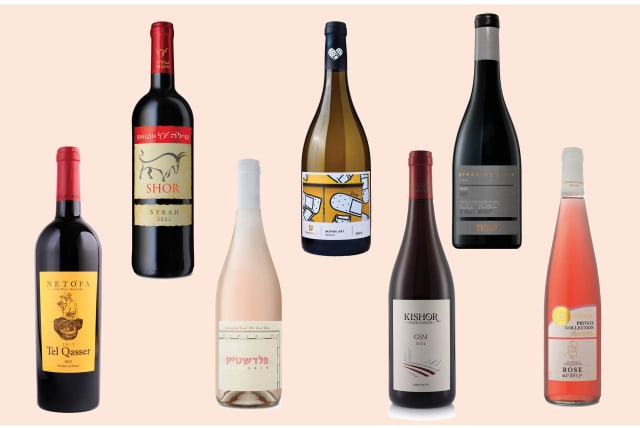Shift in Passover traditions: Jewish Americans opted for Israeli wines over Manischewitz

This year marked a significant turn towards Israeli wines, a change driven by a mix of cultural pride and geopolitical solidarity - according to an article by Market Watch.
As Passover celebrations concludes on Tuesday, a noticeable shift was observed in the wine choices of many Jewish American households. The ritual Passover holiday Seder meal has traditionally featured Manischewitz wine – a sweet, budget-friendly kosher brand produced in the US. However, this year marked a significant turn towards Israeli wines, a change driven by a mix of cultural pride and geopolitical solidarity – according to an article by Market Watch.
Cultural pride causes a change in purchase preferences
This preference shift was deeply influenced by recent events in Israel, particularly the ongoing conflict following the massacre perpetrated by the Palestinian terrorist group Hamas on October 7.
In response, according to Market Watch, many Jewish Americans sought to support Israel economically and culturally amid rising antisemitism at home. Michael Balaban, president and chief executive of the Jewish Federation of Greater Philadelphia, emphasized the community’s drive to combat hatred by purchasing Israeli wines during Passover.
According to Royal Wine, a New Jersey-based distributor and the largest importer of Israeli wines in the US, sales volume has increased by nearly 30% over the past five years, with a 43% uptick in dollar value reflecting a surge in demand for higher-end Israeli wines. Retailers, especially in predominantly Jewish neighborhoods like Brooklyn, reported a 200% increase in sales of Israeli wines for Passover compared to the previous year.
Wineries in Israel struggle during the war
The challenges facing the Israeli wine industry have been severe, particularly after the October 7 infiltration and attack, which disrupted the local market and workforce. Wineries reported significant drops in domestic sales due to the war’s impact on local consumption and restaurant closures. Amichai Lourie, winemaker at Shiloh Winery, noted to Market Watch that not a single bottle was sold within Israel for three months following the attack.
Despite these hurdles, US support was crucial in sustaining the Israeli wine sector. The quality of Israeli wines has seen substantial improvement over recent decades, with the country’s wine producers gaining a reputation for their innovative approaches and adaptability to the local climate. This has positioned Israel alongside other noted wine-producing regions that have risen to prominence on the global stage.
Nathan Herzog, president of Royal Wine Corp., described Passover to northjersey.com as their “Super Bowl,” highlighting the shift from traditional syrupy-sweet kosher wines to a diverse array of high-quality options. “Passover is like our Super Bowl,” he emphasized during a tour of their 200,000-square-foot facility in Bayonne, New Jersey.
The company handles operations across 17 countries and sees 40% of its annual business during this period.
Jay Buchsbaum, vice president, noted that the company’s growth, which averages 5-10% annually, is increasingly driven by non-Jewish consumers. “We spent money marketing the product to hip-hop fans,” Buchsbaum said, reflecting on the expanded market reach and evolving consumer preferences. According to northjersey.com, Royal Wine has adapted to global trends, offering everything from private-label celebrity wines to imports from nearly every wine-producing region.
Jerusalem Post Store
`; document.getElementById("linkPremium").innerHTML = cont; var divWithLink = document.getElementById("premium-link"); if (divWithLink !== null && divWithLink !== 'undefined') { divWithLink.style.border = "solid 1px #cb0f3e"; divWithLink.style.textAlign = "center"; divWithLink.style.marginBottom = "15px"; divWithLink.style.marginTop = "15px"; divWithLink.style.width = "100%"; divWithLink.style.backgroundColor = "#122952"; divWithLink.style.color = "#ffffff"; divWithLink.style.lineHeight = "1.5"; } } (function (v, i) { });

